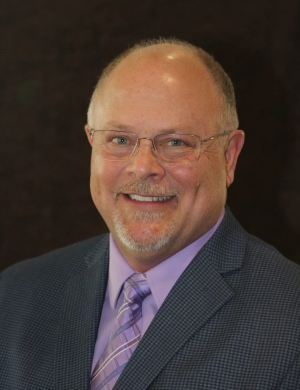This award recognizes outstanding contributions to regulatory plant pathology, crop security, and trade enhancement efforts by APS members.

Scott Heuchelin was raised on a large grain and livestock farm in northeastern Iowa. He attended the University of Northern Iowa, where he obtained a B.S. degree in biology in 1987, with an emphasis in plant physiology. He completed his M.S. and Ph.D. degrees in plant pathology at Iowa State University (ISU) in 1992 and 1997, respectively. Heuchelin then moved to The University of Wisconsin, Madison, where he was a postdoctoral associate in the Department of Plant Pathology. In late 1998, Heuchelin joined the Agronomy Department at ISU as an assistant scientist and became an assistant professor in agronomy in 1999. In 2003 he joined the Plant Pathology group at DuPont Pioneer and has continued as a plant pathologist in the plant breeding organization for 18 years.
Heuchelin is currently the North America plant pathology and global phytosanitary leader at Corteva Agriscience and leads a team with responsibilities that include phytosanitary processes, pathogen diagnostics, field phenotyping, and centralized inoculum production. Heuchelin has made outstanding contributions and played a leading role in regulatory plant pathology and crop security. Not only is he responsible for global phytosanitary within Corteva, but he has worked extensively with industry, academia, research institutions, and regulatory agencies on the development and implementation of regional, national, and international regulatory and phytosanitary protocols. His highly successful career and his great dedication to regulatory plant pathology and crop security throughout his career make him exceptionally qualified for the APS Excellence in Regulatory Affairs and Crop Security Award.
As an assistant professor at ISU, Heuchelin took the lead on developing an innovative curriculum in integrated pest management (IPM) and crop protection for the ISU Master of Science in Agronomy Program and Certified Crop Advisor training, which included regulatory considerations of pest and pathogens. The learning modules he developed (Agron514, Agron533) are currently still taught as part of the Master of Science in Agronomy Program at ISU. The modules were recognized by the American Society of Agronomy as part of the Educational Materials National Awards Program. As the leader of the global phytosanitary efforts at Corteva, Heuchelin leads implementation and maintenance of Corteva’s National Seed Health System accreditation across 5crops and 25 states, which is critical for efficiency and phytosanitary safety of seed shipments. He leads global efforts for the company on risk mitigation and clean seed channel processes and diagnostics and provides technical expertise to develop the appropriate processes and procedures. His proactive approach to possible issues is key to successfully being able to safely ship tens of thousands of seed lots internationally each year. In addition, Heuchelin engages with many government agencies across the globe to enable Corteva to set up effective PEQ facilities, establish best practice phytosanitary inspection processes, and provide scientific information to create better understanding about certain pathogens, which has helped reduce regulatory hurdles, benefitting the whole agricultural seed industry.
Heuchelin’s external commitment and contributions to development, implementation, and improvement of national and phytosanitary processes and seed health regulations have been substantial. Heuchelin has been a voting board member of the National Seed Health System Policy & Procedures Advisory Board (PPAB) since 2016 and, as such, reviews and advises on best practices for pathogen testing protocols. Heuchelin has been serving as the 2021-2022 chair of the American Seed Trade Association (ASTA) Phytosanitary Committee, and in this capacity, he has developed targeted agendas for phytosanitary sessions, including one on the biological relevance of molecular seed health testing results. An important outcome from this session is that the Seed Science Foundation is currently in the process of determining what research should be undertaken to address the difficult problem of lack of correlation between molecular test results and actual viability of seed-borne and -transmitted pathogens. He also serves on the Phytosanitary Committee of the Seed Association of the Americas (SAA) and the International Seed Federation (IFS) Phytosanitary and Systems Approach Expert Groups. Heuchelin’s expertise is recognized externally and highlighted by peer nominations to serve on these national and international committees, where he actively contributes to developing and implementing strategies and improved processes for phytosanitary regulations and seed health.
